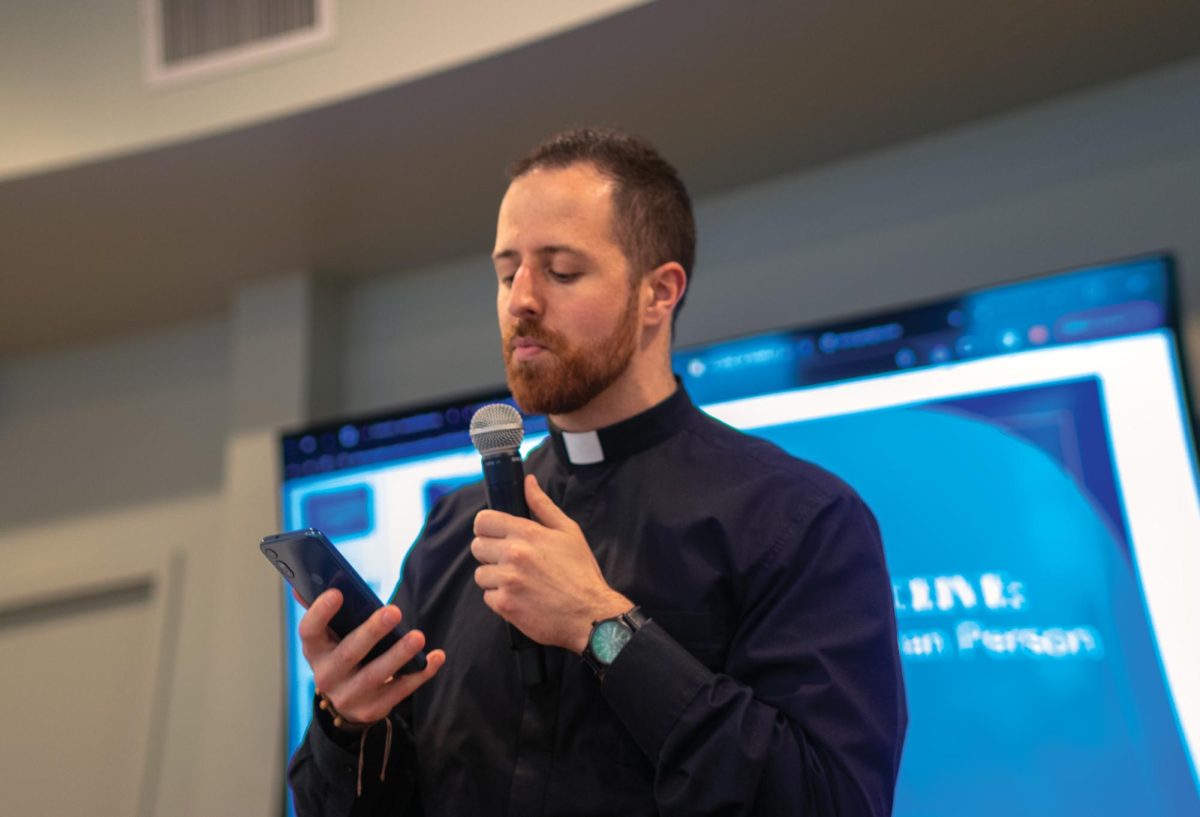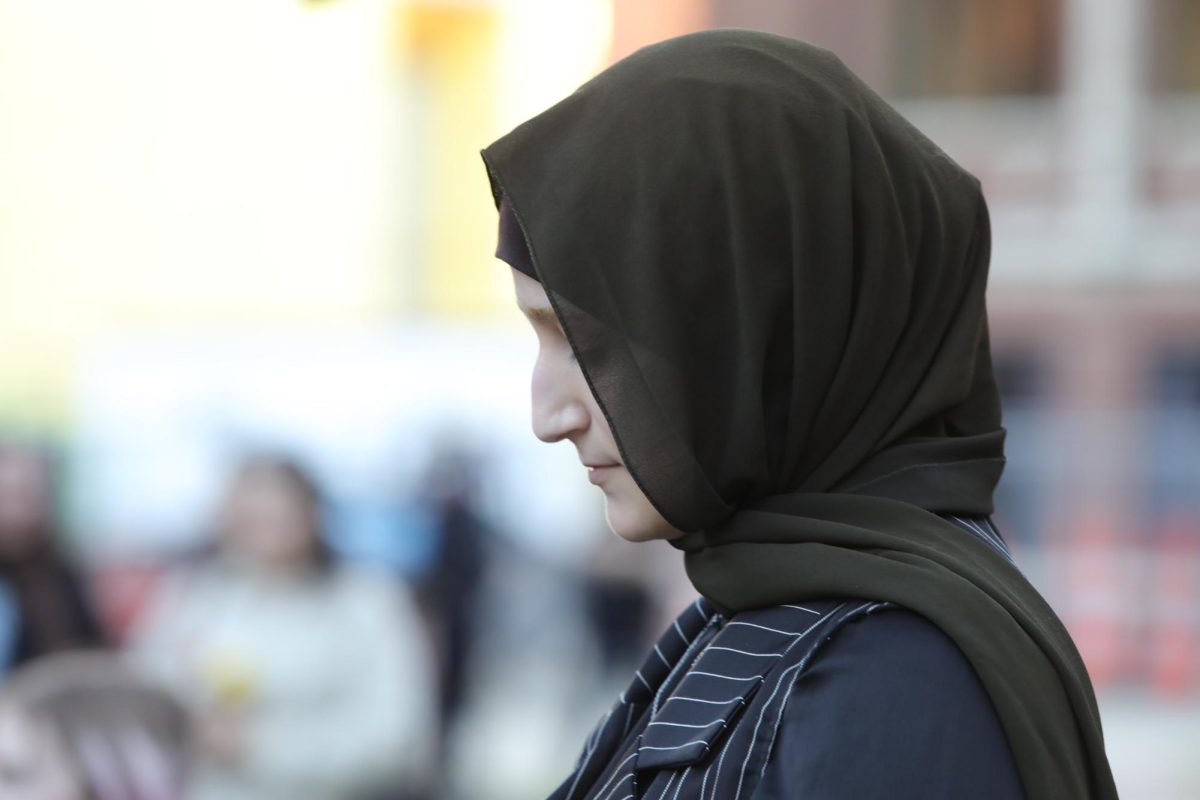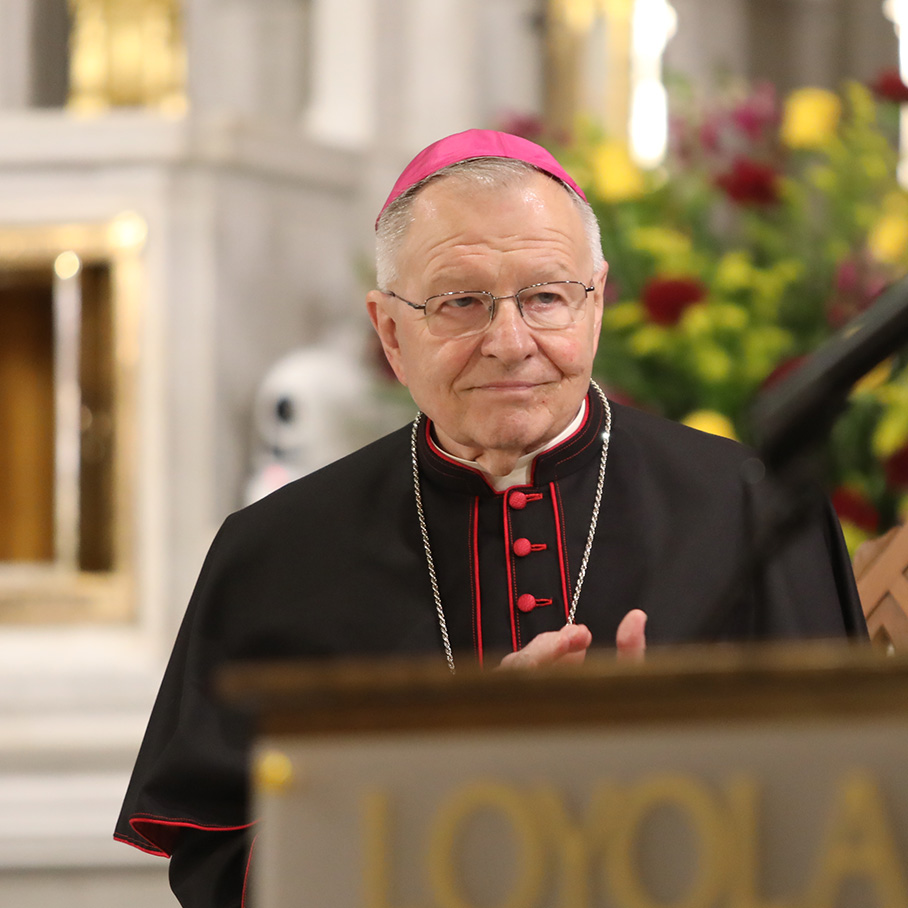The Muslim Student Association held its first congregated Friday prayer in the basement of the Danna Center in the spring of 2011.
Loyola’s MSA is one of several groups and programs that support students from non-Christian backgrounds.
According to Zaina Mansour, mass communication junior and president of MSA for the 2011-2012 school year, Loyola has been supportive of Muslim students and MSA.
“The organization exists to serve Loyola’s growing Muslim community and serve as a means of facilitating conversation between Muslim and non-Muslim students,” Mansour said.
The number of Muslim students on Loyola’s campus has increased from 12 in fall 2008 to 20 in fall 2010, according to the Office of Institutional Research. The Muslim Student Association has been on campus since 2003. The prayer room, where the Friday service is held, was allocated in 2008 by the Student Government Association. MSA holds events such as the annual Fast-a-Thon, which is a charity fundraiser that challenges the campus community to fast for one day during the Muslim holy month of Ramadan.
University Ministry annually holds a Ramadan dinner, just like it holds a Seder dinner, even if the group can’t handle it itself, said Kurt Bindewald, director of University Ministry.
“There are some real truths to other faiths that we embrace,” Bindewald said. “We develop programs from how to get along with your roommates to having interfaith conversations.”
The religious studies department hired an Islamic studies scholar, Aaron Spevack, in fall 2010. The number of courses on Islam, therefore, will increase from three to five in the next few years, said Timothy Cahill, director of the religious studies department, in an e-mail.
Courses such as Discovering Islam, Women and Islam, and Sufism: Islam and the Mystic Path are taught now.
“In the near future we hope to offer a course on Muhammad and the Quran,” Cahill said.
Spevack, assistant professor of religious studies, leads the Friday prayer in MSA’s prayer room every week. He said many Muslims face very real predjudices, but that Loyola is more accepting than many places.
“A lot of Muslims applying for jobs have a big conflict: should they say they are practicing Muslims or not? If they are not practicing Muslims, they’ll go out of their way to eat pork and drink alcohol, for example, for fear of having people being prejudiced against them,” Spevack said. “But here, at my interview, I was open about my faith and some people felt that will be more helpful than harmful. Some universities wouldn’t want anybody who believes in any religious tradition to be teaching religion.”
Haroon Waseem, member of Xavier University’s Muslim Student Association, said many students at Xavier are not educated about Islam.
“They know that you are a Muslim, but the first thing I usually have been asked is, ‘So, you follow Islam?’ I mean, they don’t even know that basic connection,” Waseem said.
Waseem said many Muslim women at Xavier wear hijabs and abayas.
Zacharea Katerji, president of Loyola University of Chicago’s MSA, said there has been a mosque on Loyola Chicago’s campus for more than 15 years. He said the university is building a new one twice as big as the current one.
“If it wasn’t for the University Ministry, we wouldn’t be so active and popular as we are now,” Katerji said.
Loyola University of Chicago is a sister Jesuit school of Loyola University New Orleans.
Muslim women openly wear their traditional attire at Chicago, Katerji said.
Zainab Aziz can be reached at







